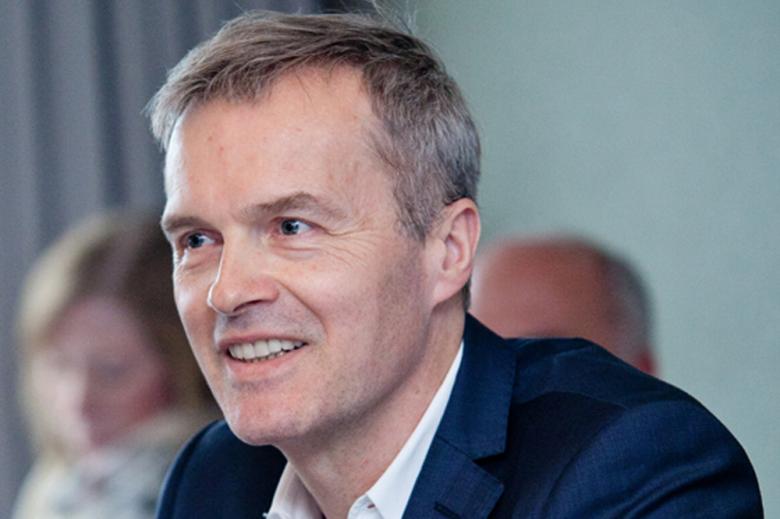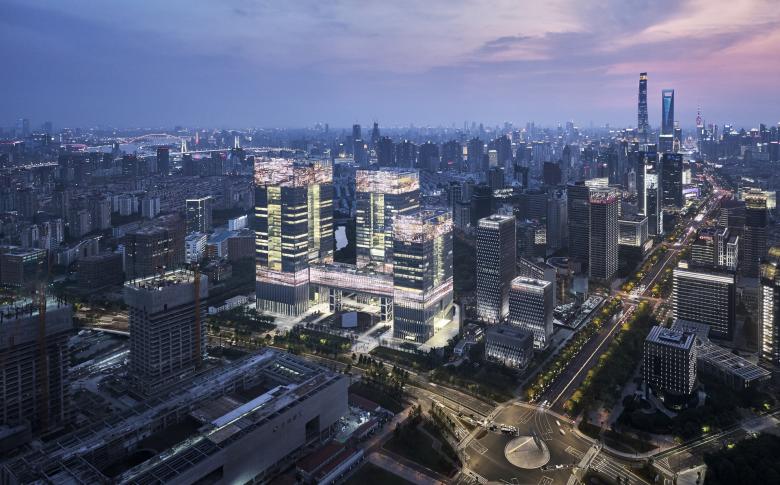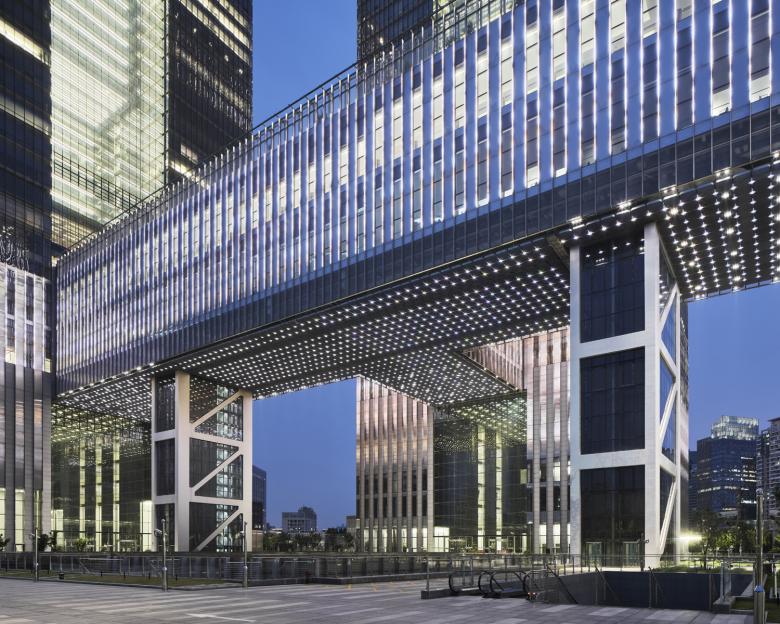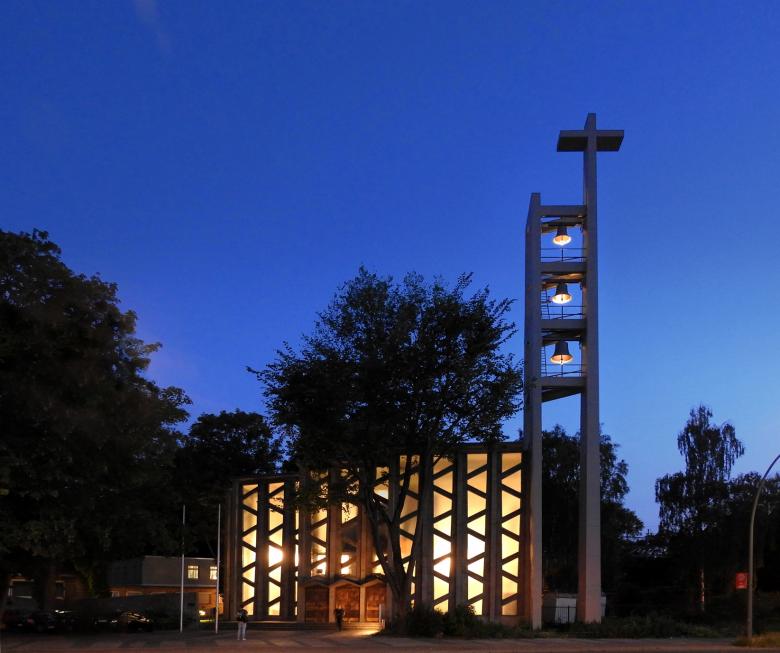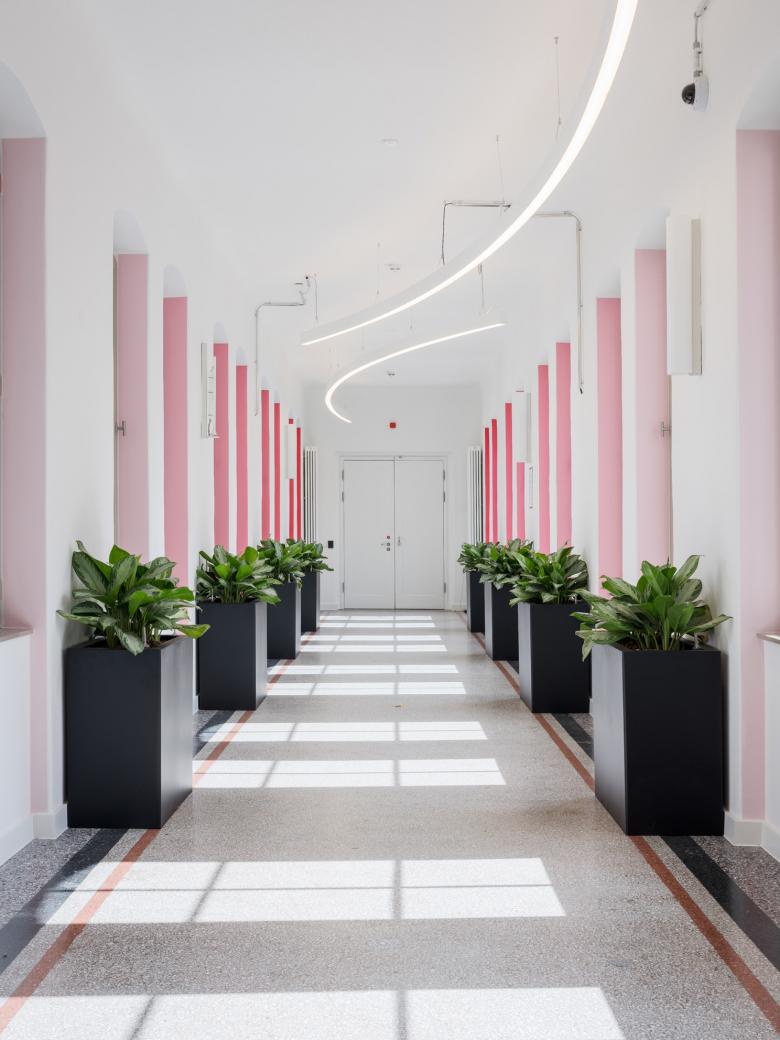Prof. Michael F. Rohde: »Nature is inspiration and can be helpful for successful lighting design.«
Thomas Geuder
7. February 2024
Prof. Michael F. Rohde, L-Plan Lighting Design (Photo: L-Plan)
Lighting design has come a long way in the last two decades. What used to be part of electrical planning is now an integral part of building design. One person who has made significant contributions to this field for 25 years, both in practice and in teaching, is Michael F. Rohde from Berlin. We spoke to him about how the quality of lighting design can be further improved in the future and what levers are needed for this in politics as well as in the professional world.
Mr Rohde, you founded your office L-Plan in 1999, at a time when lighting design was still mostly part of electrical design and there were very few explicit lighting design offices. What motivated you to start a lighting design office anyway? How did you perceive the changes in your industry at that time?It's nice that you remind me of the founding of L-Plan Lighting Design and that time! Back then, the great pioneers were lighting designers such as Hans T. von Malotki and Prof. Heinrich Kramer, who had already extensively worked the fertile ground and done excellent groundwork. The speed with which L-Plan was able to acquire international projects at that time was overwhelming. At the same time, there was the challenge of finding employees—there was no training program like the one in Wismar at that time.
Shanghai International Financial Center (Photo: Qingyan Zhu)
The lighting industry has undergone tremendous changes in the last 20 years, especially with new light sources such as LED and the possibility of interconnectivity through smart building automation. What were the most important cornerstones for you as a lighting designer in this period?The most important thing for us was initially the quality assurance of our projects! In the beginning, the lighting industry offered partly lousy products. The "Light Symposium Wismar" with a focus on light and health played a key role in ensuring that we now have products that have the right color rendering, the blue component in the spectrum is tolerable, and LEDs can be flicker-free. These were achievements that didn't exist in the early days!
Shanghai International Financial Center (Photo: Qingyan Zhu)
Your professional practice as a lighting designer is one thing, and the other is your teaching position as a professor of "Architectural Lighting Design," the title of the English-language master's program at the Faculty of Design in Wismar, which you have held since 2006. What influence has the transformation of the lighting industry had on your work at the university?For my work, the duality in teaching and research along with the practice of lighting design was enlightening in the truest sense of the word. Both were mutually beneficial and helped us in Wismar to train students who are now in great demand and working successful worldwide. Many have started their own businesses, won international awards, and hold leading positions in the lighting industry or in planning offices. Our graduates are in demand worldwide, which is extremely gratifying. Perhaps my most important contribution was the improvement in the quality of artificial light, which we achieved through the "Light Symposium Wismar" initiated in 2008.
St. Ansgar Church in Berlin (Photo: L-Plan)
St. Ansgar Church in Berlin (Photo: L-Plan)
High-quality lighting design on a specific building is based on many different factors and can lead to very different results. What approach is particularly important to you in your design philosophy?Nature is inspiration and can be helpful for successful lighting design. The evolution of humans and perception took place in daylight. If we orient ourselves to that, it is a solid foundation. The principles of design theory and artistic reflection on light are, of course, just as important. Knowledge of the fundamental interplay of light and health also contributes to the success of high-quality architectural lighting.
My impression is that there are some countries in the Middle East and Asia where the decision for architectural lighting is increasingly being used for "normal" projects. It never ceases to amaze me how few schools, daycare centers, or simple administrative buildings are planned without incorporating the expertise of lighting design. I am convinced that any building with professional lighting design will always be better. I consider the argument "That will be expensive" to be demonstrably nonsense!
Google & YouTube Offices & Studios Berlin (Photo: Timothy Soar)
Let's take a look into the future: Where will lighting planning or lighting design ne heading in the future, and what do you think are the next big steps and challenges in your industry?We must persistently fight for there to be a "Chamber of Lighting Design" at the EU level, just like for architecture and interior design. In future, it will be equally important to make architectural lighting an absolute norm for any project in architecture, interior design, landscape planning, and urban planning.
Google & YouTube Offices & Studios Berlin (Photo: Timothy Soar)
Innovation Hub: Light + Building 2024
Modern building services technology stands for efficient energy use, individual comfort enhancement, and comprehensive security. An integral part of the built world is light. Therefore, from March 3 to 8, 2024, Light + Building in Frankfurt/Main will present the entire spectrum from intelligent lighting technology to pioneering building services technology.
Over 2,000 exhibitors have registered to present their innovations live to a broad audience across the entire Frankfurt exhibition center. With its comprehensive range encompassing lighting, electrical technology, home and building automation, and connected safety and security technology, the world's leading trade fair is a must for architects, interior designers, designers, planners, and engineers, as well as for crafts, trade, and industry. Under the motto "Be Electrified", the international leading trade fair focuses on electrification—the basis for greater sustainability and a future-oriented building sector.
The extensive event program provides inspiration and information. The Design Plaza in Hall 3.1 revolves around light, architecture, and design. The program includes trend lectures by the trend bureau bora.herke.palmisano, the presentation of the Design Plus Awards by Light + Building, as well as talks by Women in Lighting. In thematic proximity to home and building automation and electrical technology, the Building Plaza in Hall 9.0 and the ZVEI Technology Forum in Hall 12.1 offer lectures on industry-relevant topics.
All information on the highlights of the Light + Building supporting program is available at:
www.light-building.messefrankfurt.com/frankfurt/en/programme-events/events-lb.html
Light + Building – The world's leading trade fair for lighting and building services technology, 3 to 8 March 2024:
www.light-building.messefrankfurt.com/frankfurt/en.html
Talks+Tours and Guided Tours with 8 international experts
World-Architects organizes Talks+Tours with Sophia Klees, Prof. Andreas Schulz (LICHT KUNST LICHT), and Guided Tours with Prof. Clemens Tropp (TROPP LIGHTING DESIGN), Michael Burghaus (architekturbüro .pg1), Jan Nielsen (CONCEPTLICHT), Reinhard Germer (L-PLAN Lighting Design), Sabine De Schutter (Studio De Schutter), and Ulrike Brandi (Ulrike Brandi Licht). The Guided Tours are conducted in German or English and last approximately 90 minutes. Each of them will show you individual highlights at Light + Building in Frankfurt from March 3 to 6.
Light + Building Talks+Tours and Guided Tours – Information + Registration
World-Architects is content partner of Messe Frankfurt
